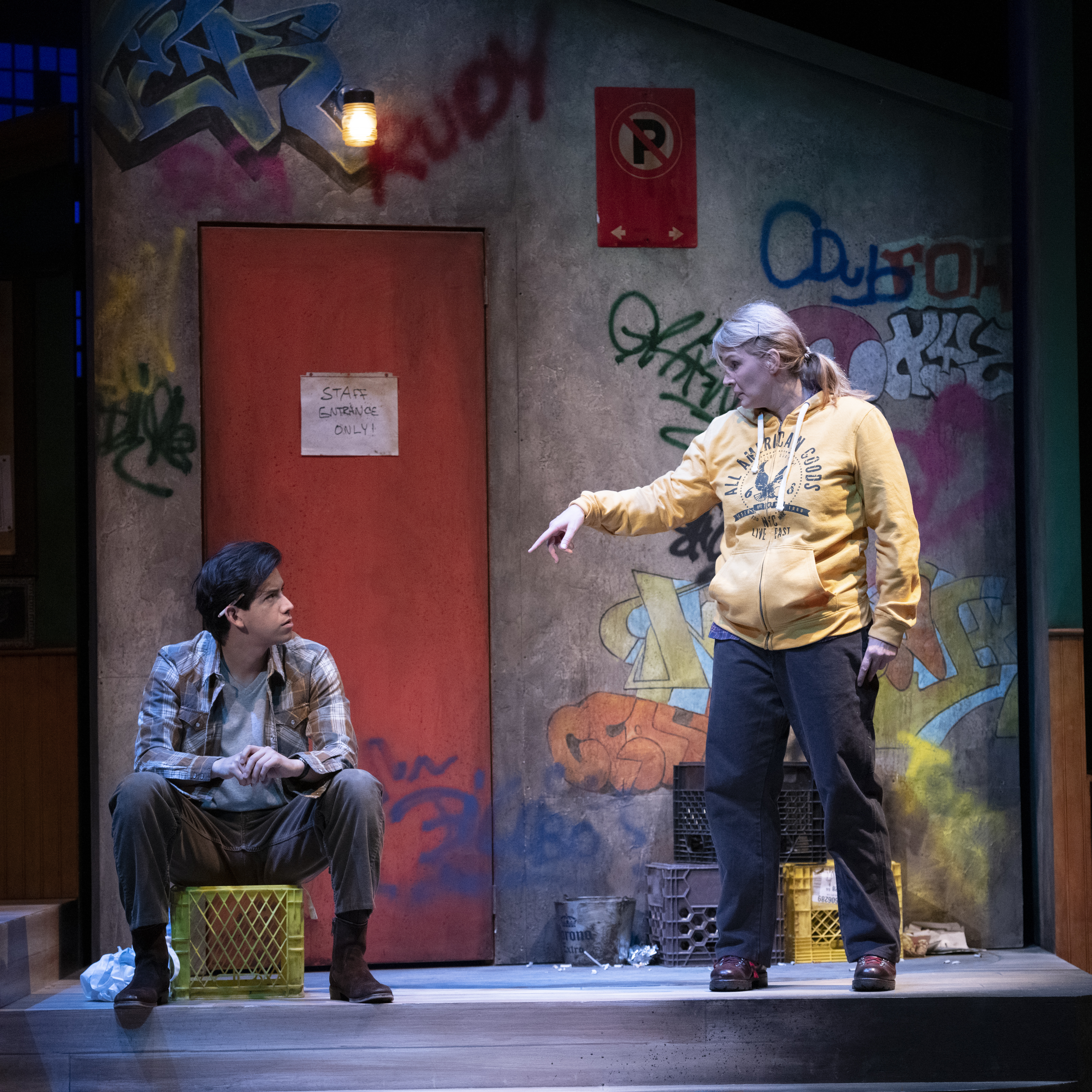
The play “Sweat”, comes with a bit of a fanfare. It won the Pulitzer Prize last year (for Drama), and during its Broadway run was heralded as showcasing the zeitgeist of our age, the blue-collar discontent which was in part a catalyst for Trump’s America.
Through the echoes of stories told in a local bar, we follow the fortunes of the residents of Reading, Pennsylvania, between 2000 – 2008. Reading is a real place, which has suffered severely from post-industrial decline.“Sweat” is a reflection of the issues facing this place through imagined characters. In the play, the centre of the community is the ‘Mill’, almost everyone works here. When management starts to squeeze out their entrenched local work-force in favour of cheaper “foreign” labour, tensions run high. The play presents the fall-out from this through a narrow lens, charting the ramifications for one particular friendship group. The result is to give a human face to often sterile headlines and to provide some perspective on the resultant unpalatable issues of addiction, violence, and racial prejudices.

The bar room set forewarns us that things aren’t always as they seem. At once familiar and yet unsettlingly different. A backdrop of a quintessentially North American bar room scene with exposed roof joists tapers towards a vanishing point. All is not quite right, however, with this formal pictorial layout. The roof joists explode at unexpected angles, free-standing walls meet the scene at distorted scales and behind them all lurks the ominous silhouette of the factory. The rules of perspective are challenged. It’s an uneasy jolt, making you question your assumptions. This is a neat metaphor for the essence of the play, a challenge on our preconceptions of people and place.

The cast produced commendable performances. All of the characters were delivered with compassion and zeal. Despite the turmoil and troubling issues portrayed, it was a delight to bask in these friendships, I genuinely liked them. Here, however, is where a success is also a detraction.An entire cast of characters that have the trappings of being floored but are essentially likeable, is not particularly representative of real life and from a shallow point of view can make for a slightly bland a piece of theatre. The real revelation would have been gaining an insight into why a particular character is the way they are, without necessarily making them likeable or repentant. (To give a slightly obtuse example, with the character Shylock in “The Merchant of Venice”, we are made to understand why he is the way he is, but that doesn’t mean that we like him). It seemed that the play was so focused on delivering measured perspectives, that the essence of the real, nuanced person was obscured. Take for example Oscar (a young Hispanic man) and Chris (a young African American man recently released from prison). They are persecuted and marginalised respectively but are both frustratingly impassive and magnanimous of their situation. It takes the least apologetic, and most belligerent, character Tracy to deliver the most sincere and enlightening moment in the whole play. In her barbed exchange with Oscar, she explains how she feels she’s losing her identity, her history is being ripped away, replaced with the cheap and disposable.

The play is pitched as being an exposé on the current socio-economic climate. The subtext is that it’s portraying the voice of the disenfranchised masses that have spearheaded the Trump / Brexit era. Given this, I went expecting some state-of-the-nation revelations but came away a bit dissatisfied. The piece deals with a malaise that’s not unique to our current political climate – it’s a sorry and all too familiar story. The decline of the western post-industrial city has been ravaging communities, causing divisions and has been a political driver for half a century, or more. I feel that there is more then was reflected in the play, to properly address the “why now” question.

You’d have to be fairly ensconced in your ivory tower for the issues raised in this play to be a revelation but that doesn’t mean that it’s not important to be reminded of them. The agenda of the play is still laudable, it carries an urgent desire to provoke empathy and understanding for the lives of others and that is something precious. Something we should never tire from.
You can get your tickets here.
– MG
